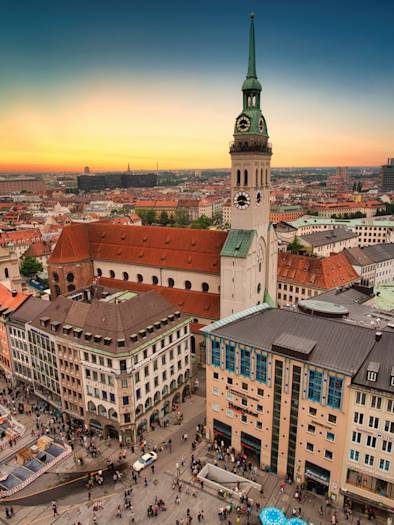
Polish President Andrzej Duda re-elected for second term
Andrzej Duda, the incumbent president of Poland, narrowly defeated Rafał Trzaskowski, the liberal mayor of Warsaw, in Sunday’s run-off presidential vote. Polish voters delivered a record turnout (68.9%), despite coronavirus restrictions in place and the beginning of the summer season. Duda, backed by the ruling conservative-nationalist Law and Justice (PiS) party, received 51.03% of votes, against 48.97% won by his challenger, backed by the center-right Civic Coalition (PO). A fierce campaign has left Poland deeply divided, exposing social, economic, cultural and geographical splits.
Andrzej Duda’s victory heralds a significant tightening of Poland’s political course, giving PiS almost unrestricted dominance and control over most areas of Polish political and economic activity. With the next elections scheduled for 2023 and Duda remaining in office until 2025, Jarosław Kaczyński, Law and Justice’s undisputed leader and real power behind the throne, is expected to finally execute his vision of Poland as a conservative, Catholic country with widespread social focus and a large dose of Euroscepticism. His top priorities include dealing with largely independent local authorities, critical media, and insubordinate judges. PiS is determined to complete the controversial reforms of the judicial system through further replacement and subjugation of judicial staff. A reorganization of local governments, which stands for increased obligations and limited funding, is meant to weaken the strongholds of the opposition. The bill on ‘repolonization’ of the media has already been drafted by the Ministry of Culture, but its announcement has been withheld due to the campaign. The PiS government is eager to follow the Hungarian model – it plans to enable the purchase of media outlets from foreign investors by Polish state-owned banks and insurance groups. Duda is expected to sign off on each of these plans.
In terms of foreign policy, the election results will further complicate Warsaw’s relations with Brussels. Another electoral victory since 2015 and a loud team of MPs grouped in the European Conservatives and Reformists Party will strengthen the PiS government’s position within the EU. Back at home Law and Justice will make every effort to regain a majority in the Senate (the upper house of the Polish Parliament), which plays a key role in fast-tracking legislation. Since October 2019 the Senate is a fragile bastion of the opposition, which only delays the government’s most controversial bills.
Rafał Trzaskowski’s run for presidency has been praised as one of the best opposition campaigns in recent years. The campaign, focused wholly on the candidate and not his party, disconnected him from the liberal, urban, EU-focused Civic Platform. After defeating nine rivals in the first round and attaining an impressive second round result, Trzaskowski, who had so far been underrated in the Polish political scene, emerged as a possible hero of the opposition and saved Civic Coalition’s leading position among the forces opposing PiS.
This is the fourth consecutive election loss for Civic Platform. A deep division within the party and a large number of disappointed voters have contributed to the progressive disintegration of party structures. During the campaign other candidates argued that Civic Platform is no longer able to win against the ruling party. Trzaskowski, who has been standing on the sidelines of internal party frictions so far, proved them wrong. He brings new hope to his party which is still struggling under recently changed, hardly charismatic, leadership.
Yet the outburst of civic engagement in biggest cities and the large number of votes may prove unsustainable, melting fast with each year under the rule of Law and Justice. While the election results suggest that the Polish political scene is split in half, the opposition is certainly not a monolith. Besides the two candidates who met in the run-off, two winners and two losers emerged from the elections.
Szymon Hołownia, a TV presenter who secured the third place and 13,87% of the vote is a newcomer to the Polish politics. While he failed to confront Andrzej Duda in the run-off, he was able to threaten the position of Civic Platform as the primary opposition force (while essentially drawing from the same electorate). The main question for him now is how to maintain the momentum with no other elections in sight.
The second winner is Krzysztof Bosak, the leader of Confederacy, a far-right party. In previous years Polish nationalist parties usually failed to generate considerable support and their leaders often served as a comic relief for the political scene. This time Bosak was able to acquire a better result than his party and position himself as a political figure to be reckoned with and wooed by both Trzaskowski and Duda.
The loser is Władysław Kosiniak-Kamysz, leader of the Polish People’s Party who secured 2,36% of the vote while just months before having been polled at two-digit levels. Now his party, whose voters mostly live in rural areas and small towns, risks being effectively swallowed by the ruling Law and Justice.
The second candidate who certainly cannot be satisfied with his result of 2,22% is Robert Biedroń, the Left party’s candidate. The defeat was a consequence of Biedroń’s unimpressive campaign in the face of the Covid-19 epidemic but also the fact that Trzaskowski, who represents the left wing of the Civic Platform party was able attract a large portion of the Left’s voters and position himself as the candidate most likely to oppose Law and Justice’s homophobic rhetoric.
Possible stabilization and mitigation on the Polish political scene seem to have been a premature expectation. A conservative, nationalist vision of Poland, which proved instrumental in retaining the presidency, will further determine decisions and alliances made by PiS and President Duda, even if the latter only has a symbolic role to play. The most pressing issues include a creeping confrontation with the European Union about the rule of law in Poland, negotiations over the recovery fund and the seven-year budget plan, and Poland’s willingness to subscribe to the EU’s 2050 carbon neutrality goals.
Poland’s security policy will continue to focus on strengthening the country’s bilateral partnership with the United States. The biggest of all challenges certainly comes from the global economic crisis that has been caused by the fluctuating pandemic. This will mark Duda’s second term, ending the permanent campaign period and putting greater emphasis on his legacy building. Whether President Duda becomes more independent of the ruling party remains a central question for him to answer.







